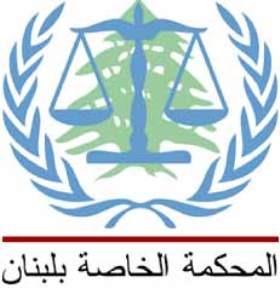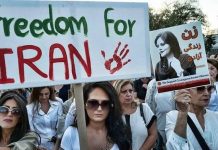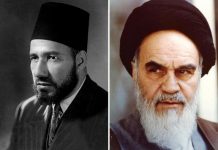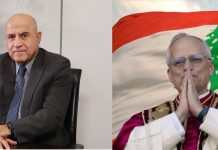نديم شحادة/ قرار اغلاق المحكمة الخاصة بلبنان، المكلفة محاكمة قتلة رفيق الحريري ، هو قرار طائش
Shutting down Hariri tribunal a reckless move
Nadim Shehadi/Arab News/June 25/2022
The Special Tribunal for Lebanon may have performed its final act. Unless an intensive campaign is launched to reactivate it, on July 1 it will move to what is called a “residual phase,” leading to its eventual shutdown. The impact of its closure will go far beyond the tribunal and even Lebanon — it will be felt throughout the region. It is also a blow to the overall effort to establish an international criminal justice system, which is a field that is still in its infancy. Here is an update for understanding where we are, what the residual phase means and where we can go from here.
On June 16, the tribunal’s court of appeal issued its final sentencing in the Hariri case. The court had reversed a judgment from August 2020 that found one of the defendants in the case guilty and acquitted the other two due to insufficient evidence. These two were found guilty on appeal, with the judgment issued on March 10. The Appeals Chamber concluded that a network of phones, labeled by the prosecution as belonging to the “Green Network,” was used to coordinate the attack on Hariri. Two of those convicted were members of the network. It also concluded that this network was coordinated by Mustafa Amine Badreddine, who was found to be a Hezbollah military commander during 2004 and 2005 and who was reportedly killed in Syria in 2016.
This concluded the work of the tribunal in the Hariri case itself, but not its mandate. There is another connected case in which the tribunal has issued an indictment and engaged in the pre-trial process, only for it to be suspended last June barely two weeks before the start of the trial. The case involves Salim Ayyash, who has already been found guilty and sentenced in the Hariri case. If Ayyash is involved in both cases, this further strengthens the assumption of a Hezbollah hit squad operating in Lebanon.
The suspension of this case does not make economic sense, as the bulk of the costs have already been met and the incremental costs of the trial itself are justified and minimal in comparison. But given the suspension of the case, the work of the tribunal is considered done and the residual phase will begin as scheduled. The decision to shut down the tribunal is still reversible but, once it happens, the creation of any similar process in the future will be close to impossible.
It is not yet clear what the residual phase will lead to. Technically, the original mandate of the tribunal, which was given by the UN Security Council, is still in effect. Practically, however, it has been in shut-down mode since June last year due to a lack of funds. The most important part of the residual phase will be to make sure the archives are deposited in a safe place and made available to the public. There is also the need for a thorough evaluation of the work of the tribunal and its contribution to the field of international criminal justice. The lessons learned will be valuable for any future endeavor in that field.
If the Special Tribunal for Lebanon cannot be rescued, then its mandate of accountability should be maintained by other means. There are implications for the region. One of the principal contributions of the tribunal was its definition of the Hariri assassination as an act of terrorism and describing it as a threat to international peace and security. Developments have shown that such political assassinations, which mainly target the critics of Iran’s Islamic Revolutionary Guards Corps and its militias, have spread in the region and are a threat to security. In Iraq alone, there have been more than 36 such assassinations and there is a revolt against them.
The summary of the judgement by the tribunal after this month’s sentencing includes a wording on terrorism with significance beyond Lebanon. It deserves to be quoted in full: The judges found that “terrorism is a particularly heinous crime, an intolerable threat to the peace, safety and harmony of the community. It destabilizes a country and its social and governmental institutions. Terrorism is employed to spread fear or to coerce governmental authorities to do or to refrain from doing that which its perpetrators wish. Terrorism has the potential to disturb international peace and security.”
The most controversial aspect of the tribunal is that it accepted the principle of trials in absentia, which means the possibility of sentencing without actual arrests. But there is another debate that argues that the truth is far more important than the conviction of a bunch of individuals. Indeed, even after the Nazi trials in Nuremberg, the punishment of a few people was not deemed to be sufficient to deliver justice, given the immensity of the crime. The truth itself, established through the rigorous work of such a tribunal, becomes undeniable and an important component of any political process to follow. It can replace or encourage the acknowledgment of the crime, which is important in any political resolution.
The archives of the tribunal, including the case files from its predecessor organization, the UN Independent International Investigation Commission, form an important body of data. The tribunal’s reports and proceedings contain important details that go beyond the case itself. Those included in the judgment of August 2020 are extremely valuable and include a narrative of developments in great detail. Such archives should be made available to researchers just like the Caesar files on Syria or documentation about atrocities and international crimes committed by other non-state actors like Daesh or the IRGC.
Badreddine, who was part of the original indictment in the Hariri case but was taken off after he was killed in Syria, was reportedly a senior member of Hezbollah, which is an organization affiliated with the IRGC. There were crimes committed by IRGC affiliates in Syria, Iraq and Yemen that are also documented and could serve in building cases. There are many Syrian and Iraqi refugees in Germany and other European countries who were witnesses to such crimes. In Syria, the massacres in Baba Amr in Homs and in the Qalamoun region were perpetrated by many of these militias.
There are nongovernmental organizations and UN bodies mandated to investigate war crimes in Syria and these are active in processing archives. They mainly concentrate on crimes by the regime and by Daesh, but they also have the capacity to expand their scope to include other non-state actors. The recent trials of former Assad regime officials in Germany are a case in point, with indictments made under universal jurisdiction for international crimes, and these cases were built on such archives.
Reactivation of the tribunal will require a colossal effort and massive political will on behalf of the international community to push for enough funding to continue with the mission. There is a role that Lebanese civil society can play to raise awareness and put pressure on the Lebanese government, the UN and the sponsors of the tribunal. There can also be cooperation with other regional movements, such as those in Iraq and Syria, to assert the need for accountability and protection from such crimes.
There is a whole minefield of issues embedded in the Special Tribunal for Lebanon’s project, including the definition of terrorism as an international crime and the possibility of trials in absentia. These will remain controversial among different schools of law, with endless arguments and no agreements reached. But such debates are precisely how a field grows stronger and should not be a reason to shut it down.
Judge Antonio Cassese, the first president of the tribunal, was a pioneer and a giant in that field. He was also the first president of the International Criminal Tribunal for the former Yugoslavia. He was generous with his time when I visited him at the Special Tribunal for Lebanon in November 2010 and was patient in explaining the complex issues that were at stake. I felt like a student in the presence of a great educator. He accompanied me personally to introduce me to other members of his team.
One of Cassese’s contributions has been in expanding the definition of “culpable negligence” to make it closer to “recklessness” (there are complex and endless debates about these terms among lawyers). But recklessness is such a good word to describe the negligence that can lead to the closure of the Special Tribunal for Lebanon. If it cannot be rescued, then its mandate of accountability should be maintained by other means.
• Nadim Shehadi is a Lebanese economist.





















